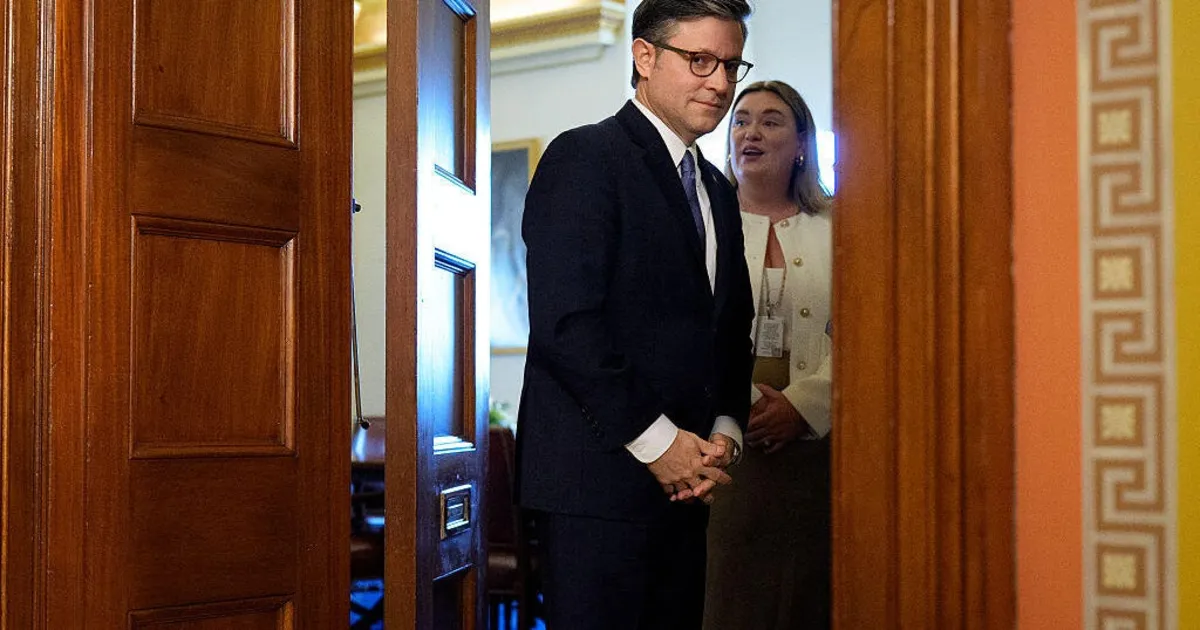
Washington — The House of Representatives is poised to vote on a critical Republican measure aimed at maintaining government funding until November 21. This vote comes amid escalating tensions as GOP leaders overlook Democratic requests for negotiations to avert a potential government shutdown. Lawmakers face a looming deadline of September 30 to secure funding for government operations.
On Thursday, House Majority Leader Steve Scalise, a Republican from Louisiana, indicated that there is a strong possibility the House may go into recess after the vote on October 1. This scenario would increase pressure on the Senate to either pass the funding bill or face a funding lapse. Both chambers of Congress are set to be out next week for Rosh Hashanah and will reconvene on September 29.
Earlier this week, House GOP leaders introduced a bill designed to extend federal spending at current levels while allocating additional funds for the security of lawmakers. This measure comes in response to heightened concerns regarding political violence, particularly following the assassination of conservative activist Charlie Kirk.
In a counteroffer released on Wednesday night, Democrats proposed a plan to keep the government open for one month—three weeks shorter than the Republican proposal. Their plan also includes a permanent extension of enhanced tax credits under the Affordable Care Act, which are set to expire at the end of the year. Republican leadership has expressed strong opposition to this aspect of the proposal.
Furthermore, Democrats are advocating for the reversal of cuts to Medicaid implemented in President Trump's recent budget plan, as well as the restoration of funding for public radio and television stations that faced cuts earlier this year. Both of these proposals are considered nonstarters by Republicans.
Attached to the Republican funding bill is an allocation of an additional $30 million for member security and $58 million designated for the protection of the executive and judicial branches. In contrast, Democrats have proposed over $320 million in security funding for lawmakers, the executive branch, and the Supreme Court.
With a slim majority in the House, Republicans can afford to lose only two votes if all members are present. Some moderate House Democrats find themselves in a challenging position and may align with the GOP to support the funding bill. House Speaker Mike Johnson expressed confidence in the bill’s passage, stating, "I think we have the votes. It's just very unfortunate that Democrats are trying to play partisan games when we're in good faith trying to fund the government." He characterized the bill as a clean, short-term continuing resolution without any hidden agendas.
While the House may pass the funding bill, its path in the Senate presents significant challenges. There, a total of 60 votes is required to advance most legislation. With Republicans holding a 53-seat majority, they will need support from at least seven Democrats to move the bill forward. Senate leaders reached an agreement on Thursday night to allow two separate votes on Friday—one on the Republican measure and another on the Democratic alternative, though both are expected to fall short of the necessary 60 votes.
Despite the historical tendency of Democrats to support funding measures, the current political climate places them under intense scrutiny. Senate Minority Leader Chuck Schumer of New York previously faced criticism for allowing Republicans to push forward with their funding plan during a past funding dispute in March. This time, Schumer, along with House Minority Leader Hakeem Jeffries, has been urging Republican leaders to engage in negotiations over the funding plan.
Senate Majority Leader John Thune, a Republican from South Dakota, along with Johnson, has suggested that negotiations may be unnecessary, as Democrats typically support clean continuing resolutions to avoid government shutdowns. Meanwhile, Senator Chris Murphy from Connecticut expressed concerns about the Republican strategy, stating, "Right now, it's clear that the Republicans are gunning for a shutdown, because if they wanted to keep the government open and operating, they would be having conversations with Democrats." He added, "I do not think Democrats have an obligation to fund the destruction of our democracy." This funding debate continues to unfold, with implications for both parties as they navigate the political landscape.